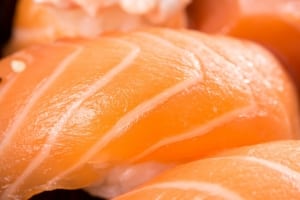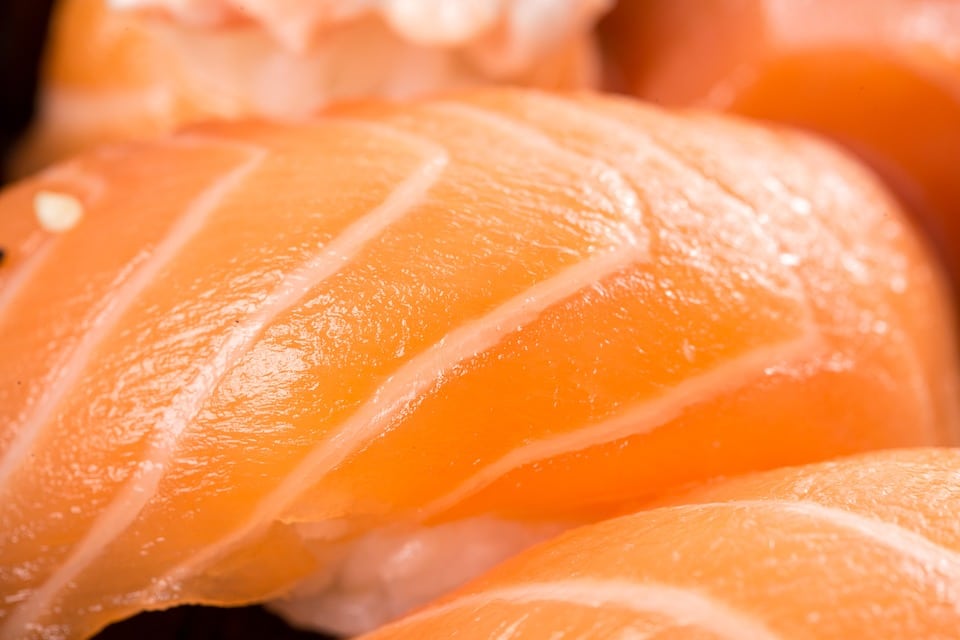 While a diet high in fat is universally a bad idea, it’s important to keep healthy fat as a part of your daily diet. Certain “good” fats are important for heart and brain health. Healthy fats have also been shown to lower LDL (low-density lipoprotein) cholesterol and help your body absorb necessary nutrients. Healthy fats can also help prevent some illness, like heart disease, cancer, obesity, diabetes, and some inflammatory conditions. However, don’t overdo it! Too much of anything can be a bad thing. Keep your eye on serving sizes and nutrition labels.
While a diet high in fat is universally a bad idea, it’s important to keep healthy fat as a part of your daily diet. Certain “good” fats are important for heart and brain health. Healthy fats have also been shown to lower LDL (low-density lipoprotein) cholesterol and help your body absorb necessary nutrients. Healthy fats can also help prevent some illness, like heart disease, cancer, obesity, diabetes, and some inflammatory conditions. However, don’t overdo it! Too much of anything can be a bad thing. Keep your eye on serving sizes and nutrition labels.
Limit “bad” fats in foods like fried foods, fatty meats, full-fat dairy, and packaged and processed foods. The best way for you to avoid “bad” fats is to limit saturated fats and avoid trans fats.
Fat accumulates in our arteries and hardens them, increasing our chances of blockages. While kids aren’t typically at a high risk of heart disease due to diet, good nutrition starts young. Teach your kids good habits now and help them towards a lifetime of health!
Ten Healthy Fat Sources
Fish
Good healthy-fat fish includes salmon, mackerel, herring, lake trout, sardines, and albacore tuna. The American Heart Association recommends eating fatty fish at least two times a week.
Avoid seafood that contains mercury like shark, swordfish, king Mackerel, and tilefish.
Avocado
Avocado is especially good for helping your body absorb nutrients.
Seeds
Many seeds are beneficial – especially pumpkin seeds, sunflower seeds, and sesame seeds.
Nuts
Walnuts, in particular, are high in heart-healthy fat.
Olive Oil
Vegetables
Some vegetables contain Omega-3 fatty acids, including dark green veggies like spinach, kale, and Brussels sprouts.
 Eggs
Eggs
One egg has about 5 grams of fat and most of that fat is made up of mono- and polyunsaturated fats. Eggs also have some saturated fats and less trans fats. There is some debate over whether we should eat only egg whites, rather than the whole egg. However, many of the good fats are found in the yolk, so we recommend eating the whole egg, in moderation.
Ground Flaxseed
Flaxseed adds fiber to your diet and eases inflammation. Use ground flaxseed in baking, by sprinkling over foods, and in cereal. Un-ground flaxseed is a little bit more challenging to digest, so it’s best to choose ground flaxseed.
Beans
Not only do many beans have healthy fats and omega-3 fatty acids, but they are also full of protein.
Omega-3-Fortified Foods
Some foods like enriched milk and eggs, bread, and breakfast bars, for example, are fortified with omega-3 fatty acids. Don’t forget to pick up a supplement, if you have a hard time purchasing omega-3-enriched foods.
For any questions or comments, respond to this blog or contact us!




